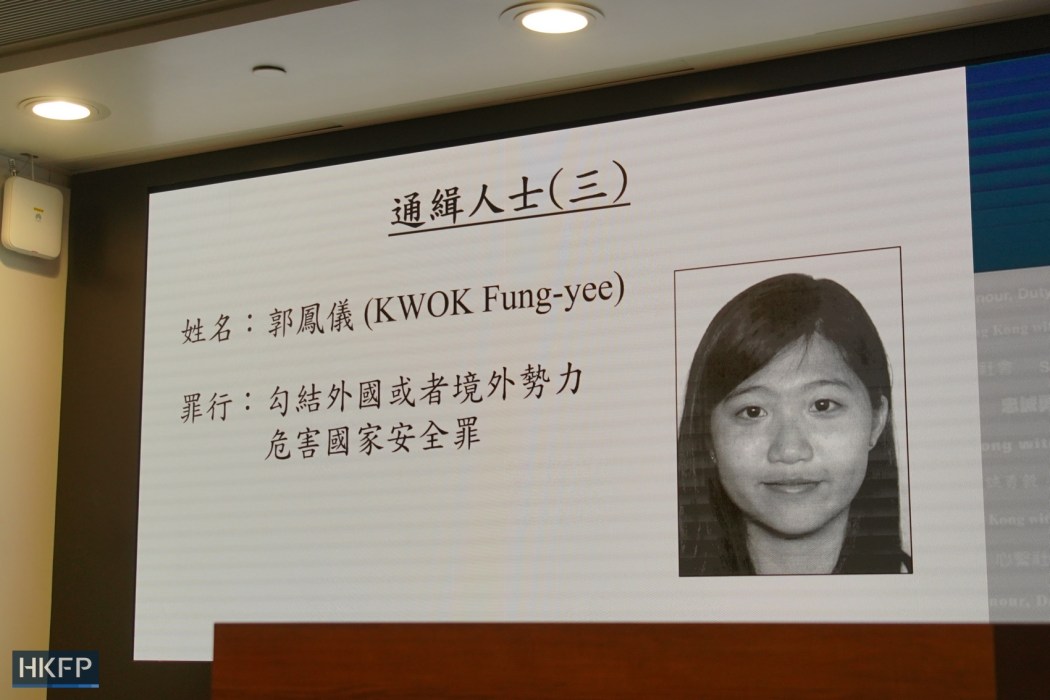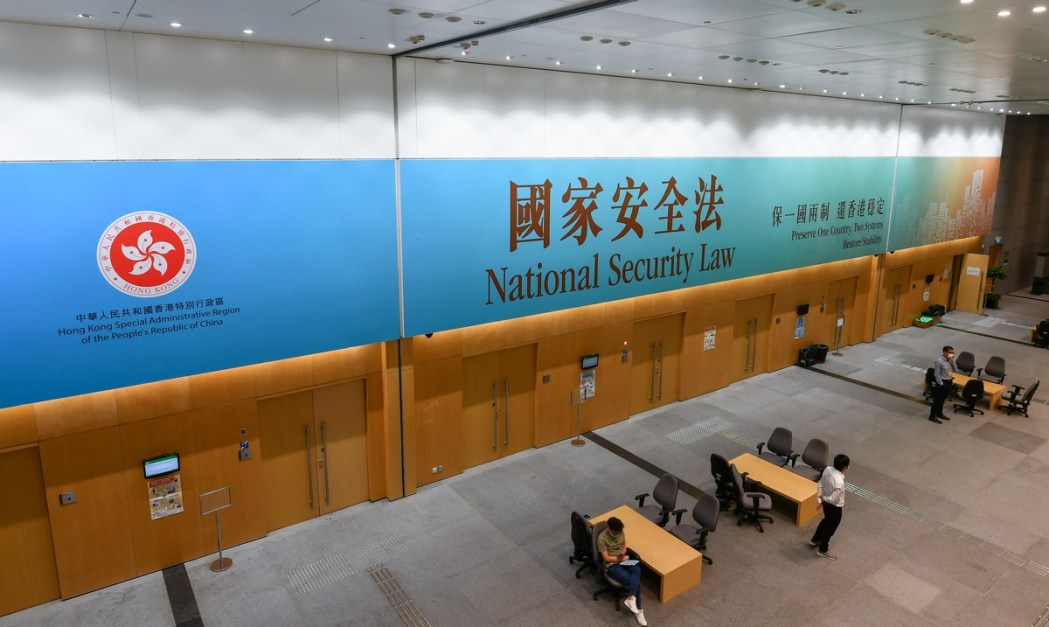Hong Kong national security police have taken the parents of a wanted activist for questioning, marking the latest move in authorities’ investigation of eight overseas pro-democracy figures issued with arrest warrants and HK$1 million bounties.

The parents of US-based Anna Kwok were taken to a police station on Tuesday morning, local media outlets reported.
The police said in response to HKFP that the National Security Department took away a man and a woman for investigation in New Territories on Tuesday. “They are suspected of assisting persons wanted by Police to continue to commit acts and engage in activities that endanger national security,” police said.
According to local media reports, police took Kwok’s parents to the police station in Tseung Kwan O and questioned them over whether they had any contact with, or had sent money, to their daughter. They were not arrested.
Kwok, 26, is the executive director of the Hong Kong Democracy Council, a non-profit organisation in the US that supports the pro-democracy movement in Hong Kong. Her social media page states that she is based in Washington D.C.

She was an anonymous activist behind major international campaigns raising awareness of Hong Kong’s protests and unrest in 2019, according to her biography on the Hong Kong Democracy Council website. That year, the city saw widespread opposition to a controversial extradition bill, which ballooned into demonstrations against the Hong Kong and Beijing governments.
Kwok was accused of colluding with foreign forces.
Wanted self-exiled democrats
Last month, national security police announced arrest warrants for eight overseas democrats, including Kwok, accusing them of calling for sanctions against local officials and scheming for foreign countries to undermine Hong Kong’s status as a financial centre. A reward of HK$1 million is being offered for each.
Police also named businessman Elmer Yuen; ex-lawmakers Ted Hui and Dennis Kwok; activists Nathan Law, Mung Siu-tat and Finn Lau; and solicitor Kevin Yam. The democrats are now based abroad, including in Australia, the US and the UK.
Since then, police have taken in the relatives, including in-laws and ex-partners, of the activists for questioning.

Those brought in by police included Law’s parents and brother, Dennis Kwok’s brother; and Mung’s brother, brother-in-law and nephew.
Multiple family members of Yuen have also been questioned, including his ex-wife, son and daughter-in-law, who is pro-Beijing lawmaker Eunice Yung. Yung took out a newspaper advertisement last year to publicly sever her relationship with Yuen.
Chief Executive John Lee and pro-establishment parties have voiced support for the warrants. At a press conference last month, Lee invited “anyone” – including the friends and family members of those wanted – to assist in their arrests.
“The government will exhaust all lawful means to apprehend criminals endangering national security… [we] will pursue them for the rest of our lives even if they run to the ends of the earth,” said the chief executive.
‘Absurdly overreaching’
In a statement published hours after national security police announced the arrest warrants, Kwok said the Hong Kong government was “absurdly overreaching by issuing a bounty for myself and seven other activists in exile.”

“Clearly, it intends to intimidate us and to stoke a mob mentality among Chinese Communist Party supporters in favour of further purges of pro-democracy activists,” she added.
Activist groups and Western countries have decried the police’s move. The US, where a number of the wanted democrats including Kwok and Yuen are based, said the exterritorial application of the Beijing-enacted law was a “dangerous precedent that threatens the human rights and fundamental freedoms of people all over the world.”
In June 2020, Beijing inserted national security legislation directly into Hong Kong’s mini-constitution – bypassing the local legislature – following a year of pro-democracy protests and unrest. It criminalised subversion, secession, collusion with foreign forces and terrorist acts, which were broadly defined to include disruption to transport and other infrastructure.
The move gave police sweeping new powers, alarming democrats, civil society groups and trade partners, as such laws have been used broadly to silence and punish dissidents in China. However, the authorities say it has restored stability and peace to the city.
Support HKFP | Policies & Ethics | Error/typo? | Contact Us | Newsletter | Transparency & Annual Report | Apps
Help safeguard press freedom & keep HKFP free for all readers by supporting our team
























